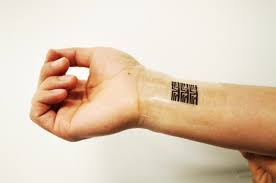August 7 (Ians) a US research team has developed a flexible and stretched computing chip that processes information by imitating the human brain.The device, described in the material journal, aims to change the way health data is processed. With this work we have bridged technology that can be worn with artificial intelligence and machine learning to make strong devices that can analyze health data right in our own body,” said SiHong Wang, a material scientist and assistant professor of molecular engineering at the University of of Chicago.
At present, getting a deep profile about your health requires a visit to a hospital or clinic. In the future, said Wang, people’s health can be tracked continuously by electronics that can be used that can detect diseases even before symptoms appear. The Wang team designed a chip that could collect data from several biosensors and draw conclusions about a person’s health using the latest machine learning approach.
What is important, they want to be used on the body and integrate with the skin. With a smart watch, there is always a gap,” Wang said. “We want something that can achieve very intimate contact and accommodate skin movements.” Wang and his team switched to the polymer, which can be used to build semiconductors and electrochemical transistors but also have the ability to stretch and bend.
They assemble polymers into a device that allows analysis of artificial intelligence -based health data. Instead of working like a typical computer, chip, called neuromorphic computing chip, functions more like a human brain that is able to store and analyze data in an integrated way.To test the use of their new device, the Wang group uses it to analyze the Electrocardiogram (EKG) data that represents the electrical activity of the human heart. They train devices to classify ECG into five categories – healthy or four types of abnormal signals. Then, they tested it on the new EKG. Whether the chip is stretched or not, they show, it can accurately classify the heartbeat.
More work is needed to test the strength of the device in concluding health and disease patterns. But in the end, it can be used to send a patient or doctor’s warning, or automatically change the drug. “If you can get real-time information about blood pressure, for example, this device can be very smart to make decisions about when to adjust the patient’s blood pressure level,” Wang said. Such automatic feedback loop has been used by several implant insulin pumps, he added.

